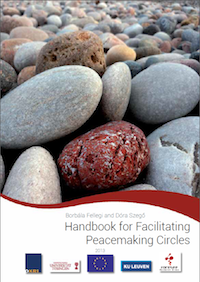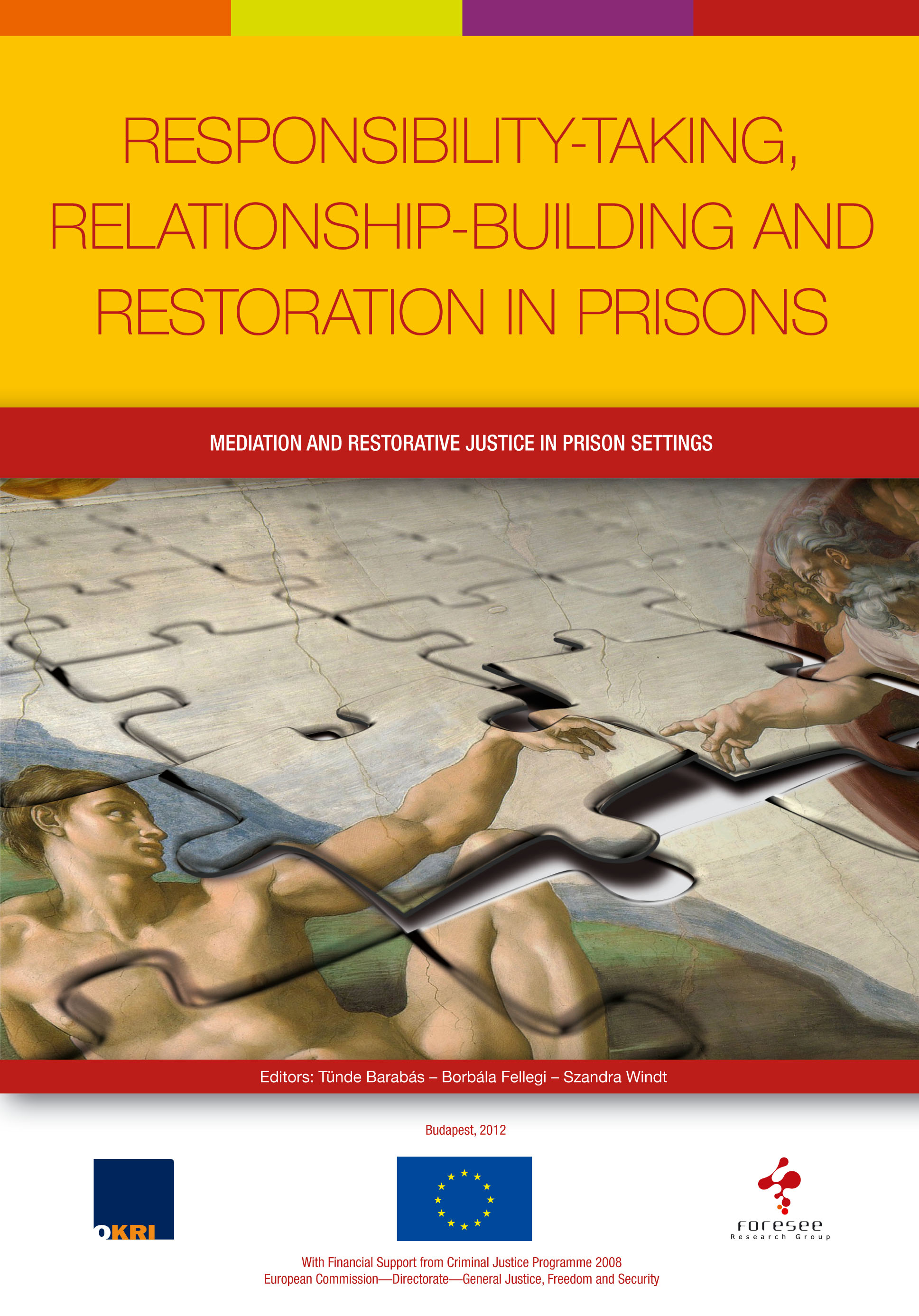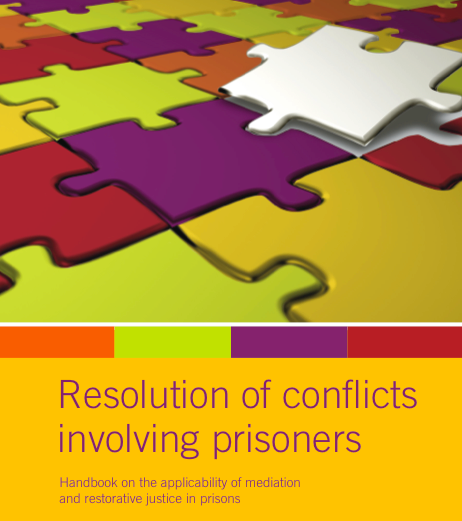
 |
 |
 |
 |
| Community | Conflict resolution | Cohesion | |
Conflict resolution
We believe that conflict is a natural part of our social lives. Moreover, through their constructive handling, interpersonal relations can be significantly strengthened. Hence, conflicts and their peaceful resolution are crucial in building communities and (re)establishing social bonds.
With our conflict resolution services we aim to disseminate the theory and methods of alternative dispute resolution (ADR). By integrating the peaceful conflict resolution approach into the everyday’s life, we promote the necessity of seeking common gains and building on real dialogue through conflict resolution.
The category of alternative dispute resolution includes conflict management and negotiation technique methods. The common feature of these methods is that the parties concerned are able to manage and solve their conflict with the help of a neutral third party specializing in conflict resolution. Their interests prevail, negative emotions neutralize, and relationships stabilize. With this method everyone can come out a winner.
Mediation is one alternative dispute resolution technique. In the mediation process an impartial mediator guides the voluntarily attending parties in the procedure to clarify the nature of their conflict and to find a beneficial solution for all. Thanks to new attitudes arising from the mediation process, the parties can form an agreement in line with their common interests.
2023. 04. 10
|
The IMPROVE project sets out to reinforce the fight against domestic violence by developing several tools to increase reporting and detection of domestic violence by empowering the victims to understand their rights to services and justice. Besides, it will support the police authorities, civil society organisations and other frontline responder organisations in enhancing their competencies to utilise innovative solutions which will enable and accelerate policy implementation.
Innovations produced by IMPROVE are based on applied research that constructs a pioneering conceptual approach which efficiently addresses diverse identities of the survivors, the underserved, vulnerable and marginalised individuals as well as multiple forms and situations of domestic violence.
IMPROVE stands for “Improving Access to Services for Victims of Domestic Violence by Accelerating Change in Frontline Responder Organisations”. Project Impacts of the IMPROVE project |
2022. 06. 30
|
In our interpersonal relations, both in the communities surrounding us and as part of the processes taking place on a societal level, we encounter conflicts and suffer “bruises”—the wounds that these conflicts inflict. The parties concerned can talk about the injuries suffered or can avoid each other; they can get closer to or further away from each other. This article features models of a Reconciliation Spiral and a Distancing Spiral that identify a range of points in each process that can help us understand the... |
2022. 06. 30
|
In our interpersonal relations, both in the communities surrounding us and as part of the processes taking place on a societal level, we encounter conflicts and suffer “bruises”—the wounds that these conflicts inflict. The parties concerned can talk about the injuries suffered or can avoid each other; they can get closer to or further away from each other. This article features models of a Reconciliation Spiral and a Distancing Spiral that identify a range of points in each process that can help us understand the dynamics that can drive movement toward one or the other. The models are supported by established research in the field, the author’s... |
2020. 06. 10
|
Article by Dóra Szegő, Researcher of the Foresee Research Group According to the statistics, in Hungary on an average three women are killed by their partners in a month. Since the IMPRODOVA research has started (May 2018), several fatal domestic violence (DV)... |
2018. 07. 09
|
The Budapest Centre is pleased to announce the release of the Summary Study of its year-long project in which Foresee Research Group was also a partnering organisation: “Prevention of radicalization in the prison-system” (BBA-5.1.6-16-2016-00001) co-financed by the Internal Security Fund of the European Union. The strengthening of radicalization and extremism is a new international trend. Its prevention, the development and harmonization of relevant capabilities is in the interest of international and national communities. The so called „vulnerable” groups of societies, in particular persons with... |
2018. 05. 14
|
Foresee Research Group is providing training and research services in 2017-2018 for the Budapest Centre for Mass Atrocities Prevention that leads and coordinates a project financed by the Internal Security Fund of the European Union. Programme |
2018. 05. 14
|
Foresee has started its training project in cooperation with the SOS Children's Villages Hungary Foundation. Working together with the SOS Children's Villages Foundation Hungary our project's title is "Supporting disadvantaged young people's entry into the... |
2016. 06. 07
|
Source: http://www.migraciokutato.hu/hu/2016/06/06/preventing-violent-radicalisation/ The Migration Research Institute and the National University of Public Service held a workshop on preventing violent... |
2014. 09. 03
|
International workshop presenting the preliminary findings of the Hungarian and Austrian action research sites in the ALTERNATIVE project A critical dialogue about the potential of restorative justice approaches (RJ) to peaceful co-existence in intercultural contexts in the CEE region on 6-7 November 2014 in Budapest, Hungary. Thinking out Loud about Justice and Security The conference is organised by the Foresee Research Group in partnership with the Institute for the Sociology of Law and Criminology (IRKS), within the framework of the |
2013. 12. 03
|
This Handbook is the first manual that provides guidance to how to facilitate peacemaking circles in the European context, especially in continental legal systems.
The full text of the Handbook can be freely downloaded in pdf format from this link. This publication is... |
2013. 07. 22
|
The Radicalisation Awareness Network (RAN) Deradicalisation Conference took place in the lovely city of Ljubljana with the participation of 25 experts from 14 countries (Austria, Bosnia and Herzcegovina, Croatia, Czech Republic, Germany, Hungary, Italy, Kosovo, Netherlands, Northern Ireland, Slovakia, Slovenia, Sweden, UK ) representing 20 non-governmental and governmental organisations and universities including Zsuzsanna Z. Papp from Foresee Research Group. RAN is set up by the European Commission as an EU wide umbrella network of practitioners and local actors involved in countering violent radicalisation and extremism with the aim of exchanging experiences, knowledge and good practices The main working mode of the two-day meeting took the form of interactive workshops that provided a good ground for exchange of information, inspirational dialogues and a great possibility to network. |
2013. 06. 13
|
The general objective of the project “Best Practices of Community Conflict Management in the Central Eastern European Region” (hereinafter referred to as GPCCM-REG) was to create a methodological and practical guide to local practitioners of the EU Member States, in which they would be able to find helpful instructions on how to plan, fund and implement programmes aiming at community conflicts prevention and/or management. Based on research findings, a distinction can be made between Member States of the Central Eastern European region and Western European region on the grounds of (apart from other characteristics) value dimensions and community organisation aspects. Due to historical reasons, one... |
2012. 04. 25
|
The book "Responsibility-taking, Relationship-building and Restoration in Prisons" (edited by BARABÁS, T. - FELLEGI, B. - WINDT, Sz.) includes the final research results and case studies about mediation and restorative justice in prisons from Hungary, the United Kingdom, Germany and Belgium. The full title of the book for references: Barabás, T. - Fellegi, B. - Windt, Sz. (eds) (2012), Responsibility-taking, Relationship-building and Restoration in Prisons, Budapest: OKRI. ISBN 978-963-89468-1-2. 330 p. This publication includes the research studies, results, observations, experiences and proposals relating to the work carried out by the participating partners over the three years of the |
2012. 04. 18
|
Foresee participates as partner in the four year-long international project funded by the European Union's 7th Framework Programme for Research and Technological Development (FP7). The project has started on 1 February and will be carried out by Belgian, Serbian, Austrian, Irish and Hungarian partners. The project aims to provide an alternative and deepened understanding based on empirical evidence of how to handle conflicts within intercultural contexts in democratic societies in order to set up security solutions for citizens and communities. |
2013. 06. 28
|
The EU funded project (JUST/2010/JPEN/AG/1609), entitled ‘How can Peacemaking Circles be implemented in countries governed by the “principle of legality?” aims to determine the potential of peacemaking circles as a European model and to test and research the implementation of this method in the justice system of three European countries: Germany, Belgium and Hungary from September 2011 until May 2013, under the leadership of the University of Tübingen.
The piloting of peacemaking circles in Hungary takes place in four counties (Békés, Szabolcs-Szatmár-Bereg, Hajdú-Bihar and Baranya) in cooperation with the local offices of justice, in the selected and eligible criminal cases. The leading partner of the Hungarian consortium is the |






















